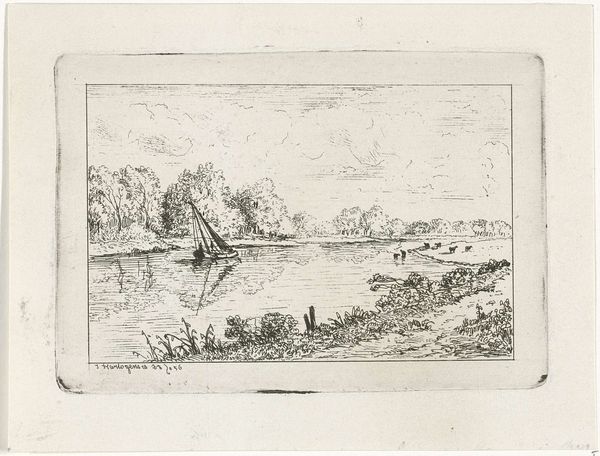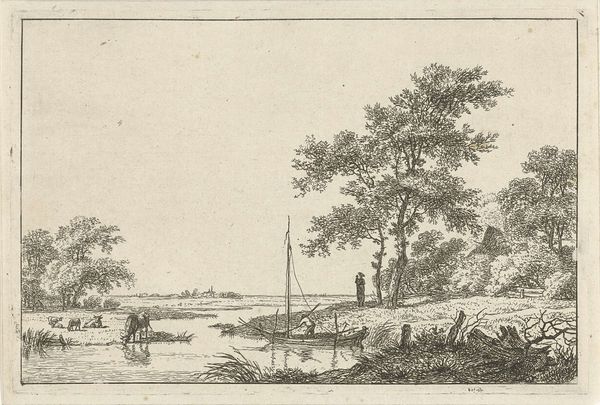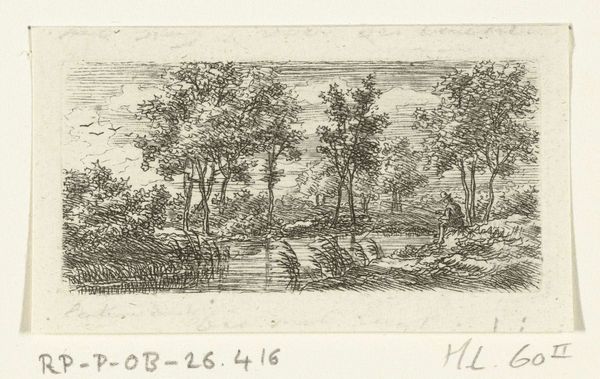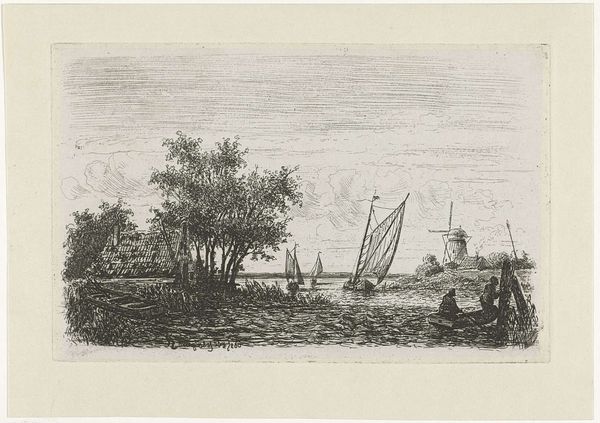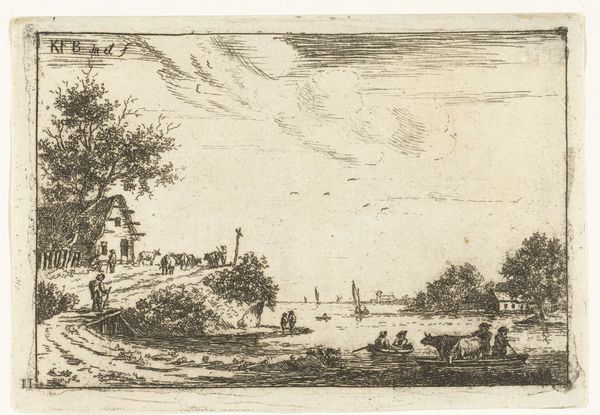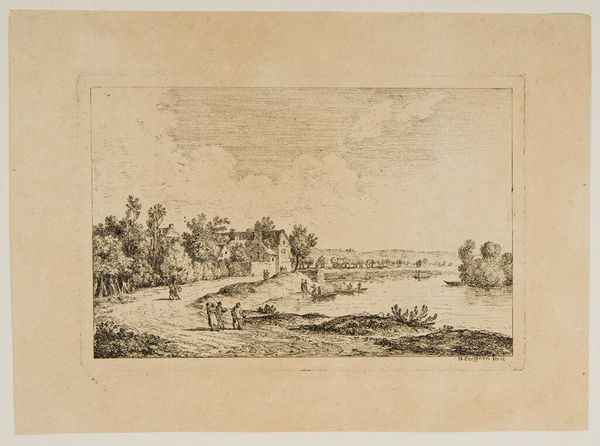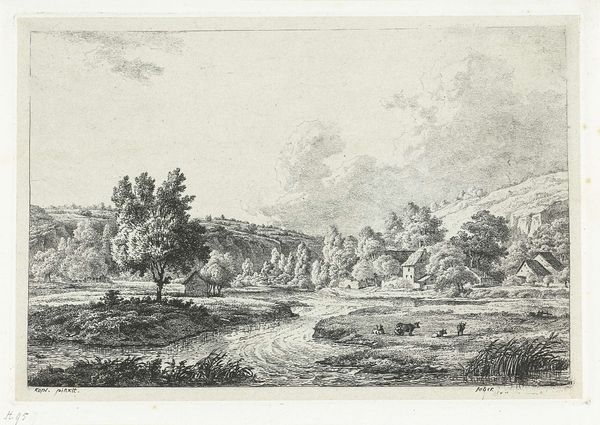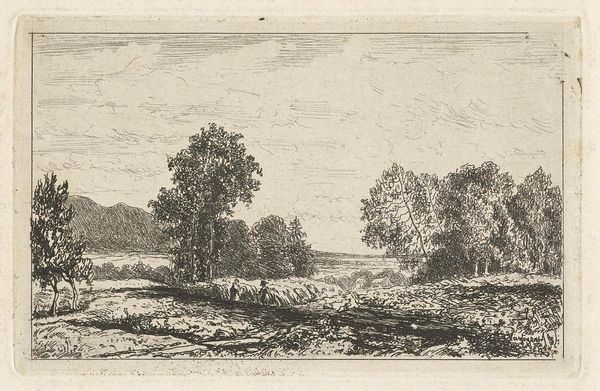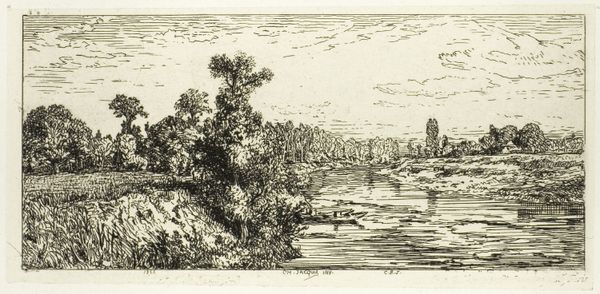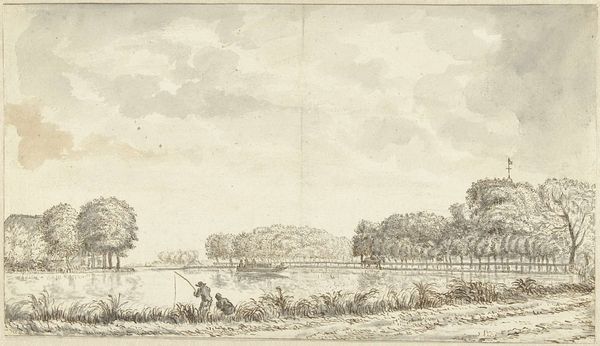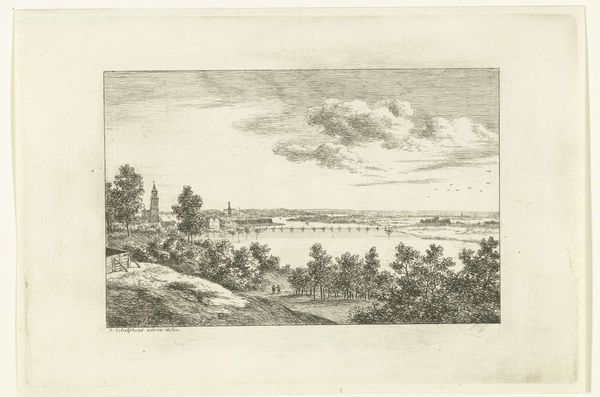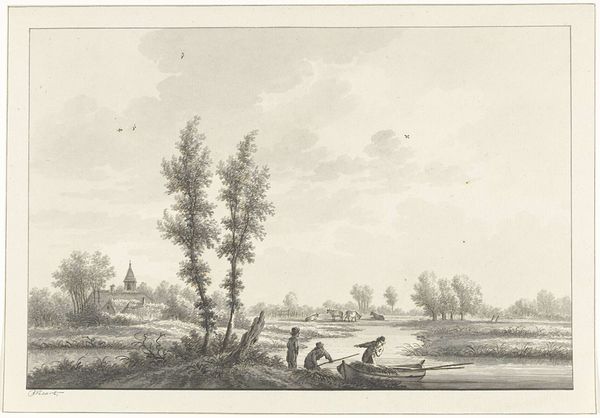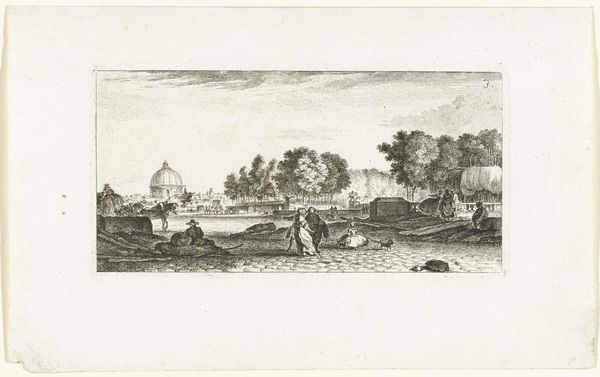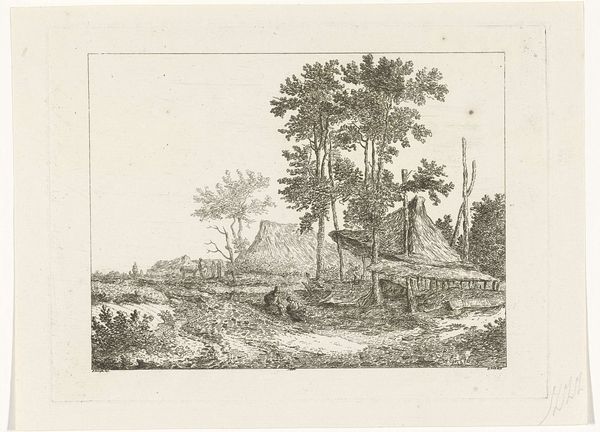
#
light pencil work
#
pen sketch
#
pencil sketch
#
old engraving style
#
incomplete sketchy
#
etching
#
pen-ink sketch
#
pen work
#
sketchbook drawing
#
pencil work
Dimensions: height 76 mm, width 110 mm
Copyright: Rijks Museum: Open Domain
Joseph Hartogensis created this etching, “Zeilboot op een Rivier,” sometime in the mid-19th century. A metal plate, likely copper, would have been burnished and coated with a waxy ground, which Hartogensis scratched through with a needle. Once the plate was submerged in acid, the exposed lines would have been etched into the surface. The labor that went into this piece is largely invisible, yet it defines the image we see. The density of line determines the tonal range, from the bright sky to the reflections in the water. You can also sense the material reality of the world depicted - the solidity of the boat, the softness of the clouds. Think about the way this print would have been consumed. Etchings like this were part of a booming print market, fueled by the rise of a middle class with time and money for art. By appreciating the making of this piece, we can understand its connection to broader economic and social trends, and to the skilled traditions of both craft and fine art.
Comments
No comments
Be the first to comment and join the conversation on the ultimate creative platform.
